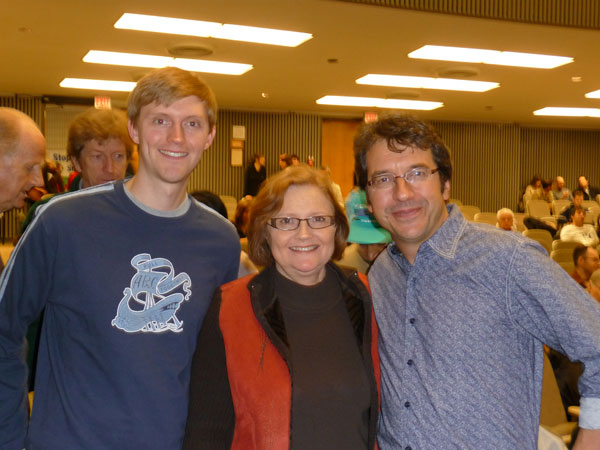
I went to hear George Monbiot speak on Saturday in Toronto, and was excited to see that he was there in person. Monbiot is one of the best (and best-known) climate change journalists in the world. A few years ago he swore off flying because of its impact on our planet, and since then has made most of his appearances via video conference. He is physically in Canada this week, however, because our “government’s behaviour in the (UN climate) talks is so destructive and the development of the oil sands is so damaging to global efforts to prevent climate breakdown” that he felt compelled to pay us a visit.
Monbiot’s message for us is blunt. He emphasizes that he really likes the Canadians he’s met and that he finds us to be very sensible, but that “the distance between ordinary Canadians and those who define your reputation on an international stage is an enormous gulf.” Our government’s actions are causing so much “shock and revulsion” internationally that “Stephen Harper and Jim Prentice threaten to do as much damage to your international standing as George W. Bush and Dick Cheney did to that of the United States.”
His concern is both regarding our behaviour at UN climate talks and our increasing production of dirty oil. The “oil curse” is not only bad for our ecology, he says, but our democracy. International examples show that dependence on oil “brutalizes a nation…it creates a political class that owes its existence to a primitive and destructive industry.” The process has already started, Monbiot says. “No one can quite believe that this prosperous country is treating its aboriginal peoples like Nigeria treats the Ogoni of the Niger Delta.”
Read his plea to Canadians in today’s Globe and Mail: Please, Canada, clean up your act
ps. I will add that all of this has a flip side. If we do clean up our act and provide leadership, we can, as Stephen Lewis says, quickly restore our reputation on the international stage while simultaneously strengthening our domestic economy by becoming more efficient and competitive. That’s our choice: lead of follow, help or hurt, become renowned or repudiated.
